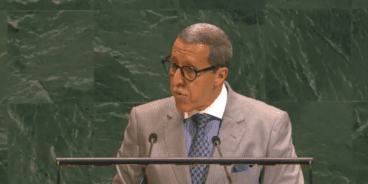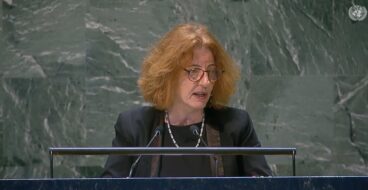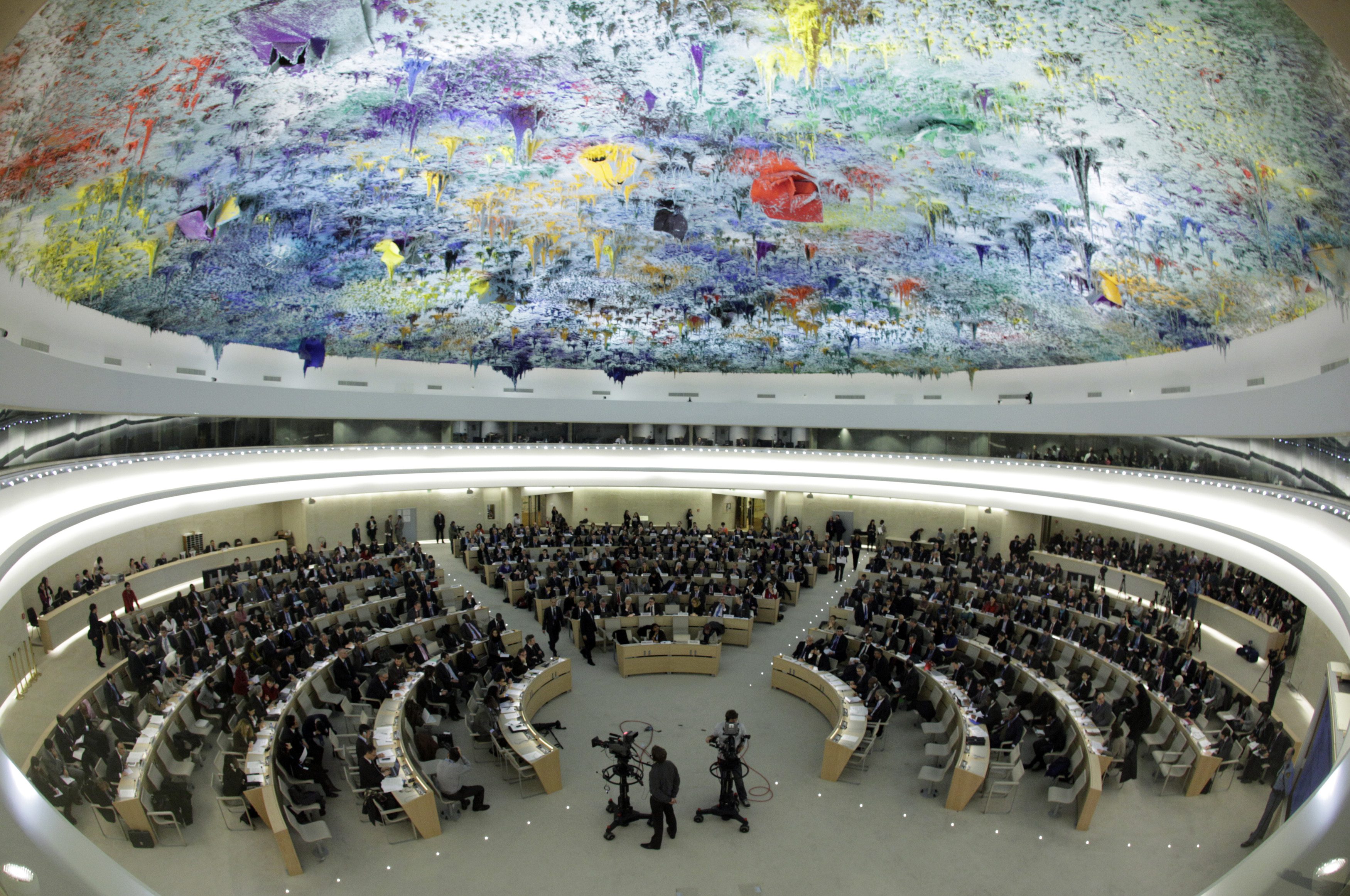
Statement on behalf of the Group of Friends of the Responsibility to Protect at the 2023 UN General Assembly Debate on R2P
I have the honor of delivering this statement on behalf of the Group of Friends of the Responsibility to Protect, consisting of 55 Member States and the European Union, and this year co-chaired by Botswana, Costa Rica and Croatia.
We would like to thank George Okoth Obbo, the Special Adviser on the Responsibility to Protect for his statement. Today marks the fourteenth year that the UN General Assembly is gathering to discuss how to implement the Responsibility to Protect, and the sixth time in the format of a formal debate.
We would like to thank the Secretary-General for his important thematic report entitled “Development and the Responsibility to Protect: Recognizing and Addressing Embedded Risks and Drivers of Atrocity Crimes”. We believe that these thematic reports contribute to shaping a holistic outlook on R2P – but would like to once more encourage the Secretary-General to include in his future reports also assessments of the implementation of recommendations of previous reports, as well as an analysis of trends regarding risks of genocide, war crimes, crimes against humanity and ethnic cleansing and their prevention, in line with what we have asked for in our previous joint statements.
This year’s annual report, and today’s formal debate, provide an important opportunity for Member States to discuss how preventing atrocities and fulfilling the 2030 Agenda for Sustainable Development go hand in hand – and how development cooperation, technical assistance and capacity building can be utilized to address root causes and mitigate other factors that increase the risk of atrocity crimes.
Violence and atrocities often cause profound political, economic and social damage, which is sometimes referred to as “development in reverse”. They also disproportionately impact women and girls and exacerbate existing inequalities. Preventing atrocities must therefore be a global development priority, as well as a moral and political imperative. Implementing policies that help prevent atrocities not only improves respect for human rights, but also strengthens a state’s capacity for political, social and economic development.
Mr. President,
The 2030 Agenda for Sustainable Development provides a framework for global cooperation to achieve a better and more sustainable future – and can significantly contribute to atrocity prevention efforts. Addressing failures of development and governance and building more resilient societies are critical elements of States’ efforts to prevent atrocity crimes. Likewise, among other things, respect for the rule of law and respect for and protection of all human rights without discrimination are critical. Legitimate, accountable and inclusive national institutions, good governance, and ensuring all populations have access to justice are key. Such efforts should be undertaken with an approach that supports diversity, gender equality, a strong civil society and a pluralistic media. Eradicating poverty, providing development assistance, and supporting capacity and institution building can address grievances and instability that may drive the perpetration of atrocity crimes. Member States should ensure that development assistance programs seek to benefit all communities, and strengthen resilience against atrocity crimes. Inhibiting the means to commit mass atrocities, including effective disarmament programs and tackling the illegal flows and illicit trade, diversion and trafficking of weapons and their ammunition can play a crucial role in prevention.
Effective prevention of atrocities can only be achieved if the UN system responds holistically by using all the tools and mechanisms at its disposal. This includes effective sharing of relevant information by all parts of the UN, which is then acted upon. Greater cross-departmental collaboration, including partnerships between the UN Office on Genocide Prevention and the Responsibility to Protect and other UN bodies, will contribute to enhancing the UN’s collective capacity to prevent or halt atrocity crimes.
Mr. President,
Today’s debate takes place at a time when the world is facing alarming levels of violence, atrocities and displacement, and where conflict-related sexual violence continues to be used as a weapon of war. Despite national and global efforts to prevent the escalation of conflicts and protect populations, there are currently more than 108 million people displaced by persecution, violence and atrocities. This record-high number is not only demonstrative of failures in prevention, but also in the inability to create the conditions for populations to voluntarily return home in safety and with dignity.
This figure also demonstrates why the Responsibility to Protect needs to be at the heart of our shared mission to advance peace and security, human rights and development. In this context, we would like to reaffirm our full support to the UN Office on Genocide Prevention and the Responsibility to Protect. As underlined in our statements at previous UNGA debates, we encourage the Secretary- General’s two Special Advisers on the Prevention of Genocide and on R2P to use their leadership roles to advance atrocity prevention and R2P and highlight risks in ongoing crises around the world. We urge the Special Advisers to strengthen these efforts, share their analyses with the wider UN membership, and regularly provide the necessary early warning assessments and recommendations on how to prevent atrocities, including to the Security Council, General Assembly and the Human Rights Council. We also encourage the two Special Advisers to work with all relevant parts of the UN system, to overcome siloes and address atrocity risks holistically.
Mr. President,
Since 2005, considerable progress has been made by the UN, Member States and other stakeholders, including civil society, in operationalizing our commitment to R2P at the national, regional and international levels. International and national actors have been successful in creating frameworks for identifying risks, developing early warning mechanisms, articulating inhibitors of atrocity crimes and creating new institutional mechanisms. This annual formal debate gives States an important opportunity to share national experiences and best practices and effective strategies for preventing atrocities.
Expertise of civil society actors can – and should – substantively inform discussions among policy- and decision-makers, including the UN Office on Genocide Prevention and R2P, in relation to atrocity prevention and R2P, particularly through the inclusion of the voices and needs of local actors and communities directly affected by ongoing atrocities. We would like to thank the Global Centre for the Responsibility to Protect for their invaluable work as Secretariat of the Global Network of R2P Focal Points and the Group of Friends, both in New York and Geneva.
Mr. President,
Over the past few years, the Secretary-General has launched various important initiatives that the Group of Friends has closely engaged on, including the New Agenda for Peace and Our Common Agenda. As these agendas are being further developed, the Group would like to note that these are pivotal moments for the UN and Member States to further advance R2P and strengthen atrocity prevention efforts.
Furthermore, we also renew our call on all Members of the Security Council to respond to and address the risk or commission of mass atrocities, noting in this context initiatives such as the ACT Code of Conduct and the French-Mexican initiative on the use of veto in case of mass atrocities.
Today, during this Formal Debate, we look forward to hearing from Member States on best practices to end the current climate of impunity and inaction with regard to the risk of atrocity crimes across the globe. Let this debate be a reminder of the importance to continue this exchange of information and the need to strengthen our individual and collective prevention efforts.
Thank you.
Related Content


